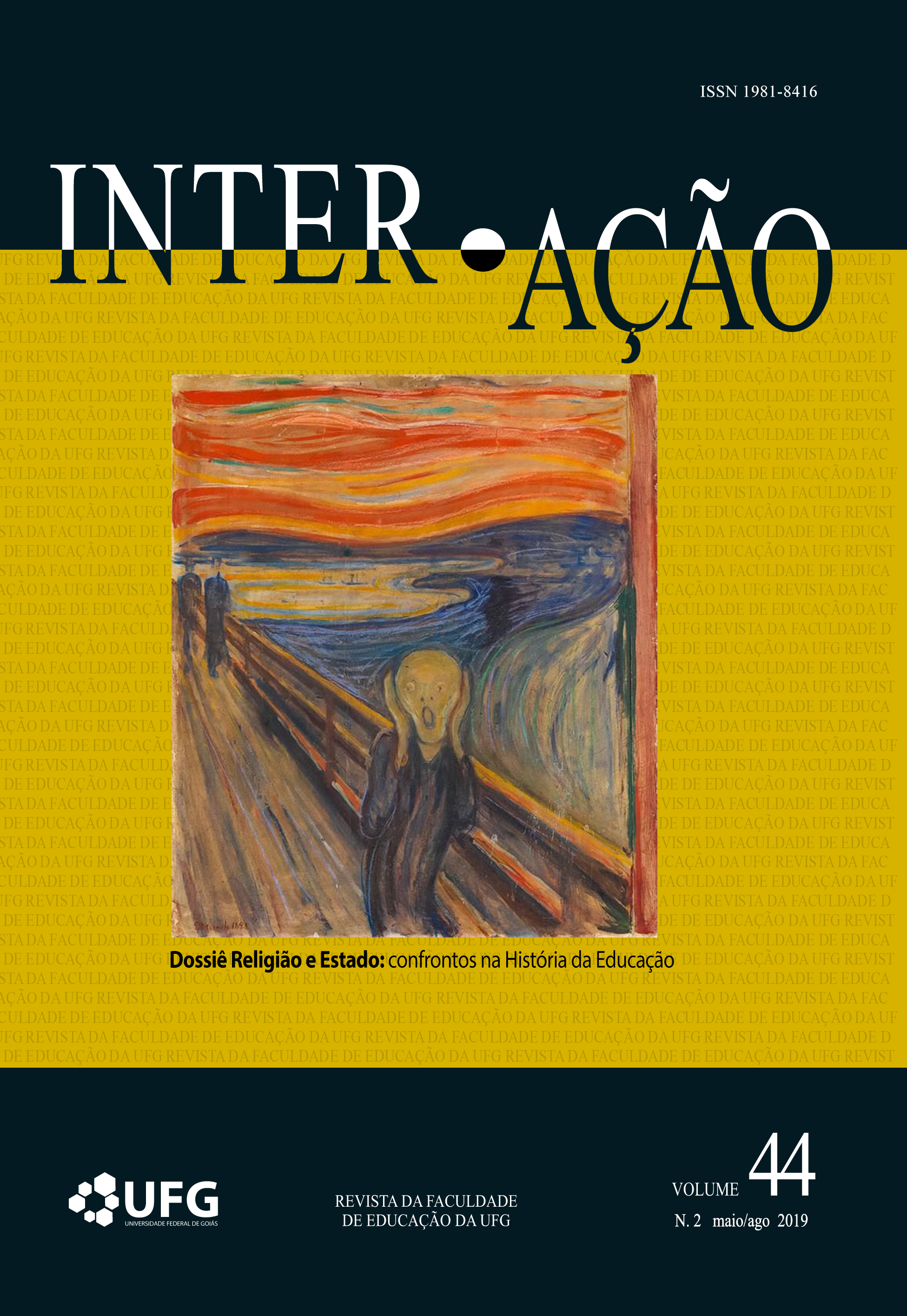JOVENS POBRES E OS SENTIDOS ATRIBUÍDOS À EDUCAÇÃO ESCOLAR E AO MUNDO TRABALHO
DOI:
https://doi.org/10.5216/ia.v44i2.55267Abstract
O presente artigo tem como objetivo geral apresentar os resultados de uma pesquisa empírica realizada com jovens pobres evadidos da escola, residentes no Setor Buriti Sereno, em Aparecida de Goiânia, Goiás, Brasil, destacando suas percepções acerca da categoria juventude, mundo do trabalho e sobre a própria condição de evadidos da escola. Parte-se do seguinte problema: quais as memórias, as trajetórias escolares e as perspectivas de futuro de quatro jovens pobres residentes em um bairro da periferia de Aparecida de Goiânia? Conclui-se que os jovens do Setor Buriti Sereno vivem, em suas condições objetivas, uma limitação social a eles imposta como construção histórica e fruto de uma intencional segregação urbana, que se dá pelas vias do trabalho informal e da evasão escolar.
Downloads
Downloads
Published
How to Cite
Issue
Section
License
Inter-Ação uses the Creative Commons Attribution 4.0 License for Open Access Journals (Open Archives Initiative - OAI) as the basis for the transfer of rights. Open access means making documents available on the Internet free of charge, so that users can read, download, copy, distribute, print, search, or link to the full text of documents, process them for indexing, use them as input data for software programs, or use them for any other lawful purpose, without financial, legal, or technical barriers.
Authors publishing in this journal agree to the following conditions:
1) Authors retain copyright and grant the journal the right of first publication, with the work simultaneously licensed under the Creative Commons Attribution License, which permits redistribution of the work with attribution and first publication in this journal.
2) Authors are permitted to enter into additional, separate agreements for non-exclusive distribution of the version of the work published in this journal (e.g., for publication in an institutional repository or as a book chapter), with attribution and first publication in this journal.
3) Authors are permitted and encouraged to publish and distribute their work online (e.g. in institutional repositories or on their home page) at any time before or during the editorial process, as this may generate productive changes as well as increase the impact and citation of the published work.















